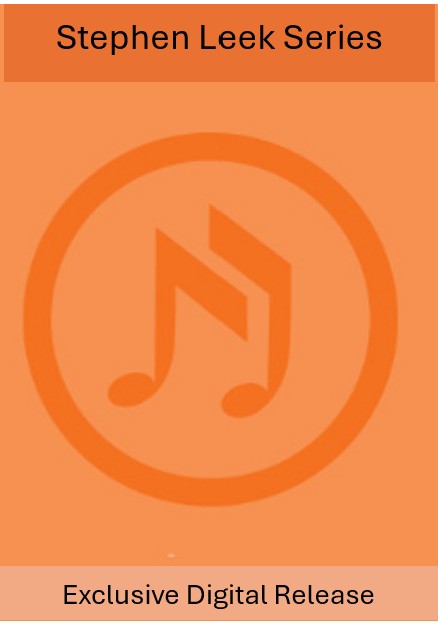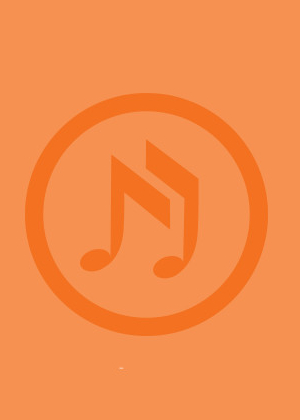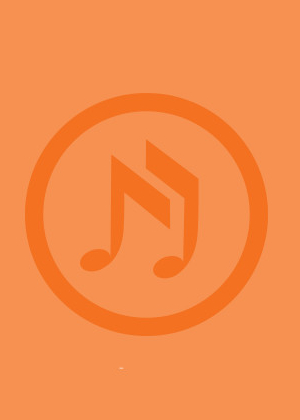| Title | Description | Composer | Voicing | |
|---|---|---|---|---|
 |
Split Point – Morton Music Exclusive |
New Release – One of Stephen Leek’s exclusive digital releases directly through Morton Music – email admin@mortonmusic.com for details. Split Point is a treble and piano 2-part piece and is a popular song for medium level primary-aged choir with words written by the students of the Eltham East Primary School Choir. It is fun to run around the lighthouse as its light rotates and protects the vessels out to sea. |
||
 |
Losing the Plot (SA) |
A collection of four pieces for treble voices and piano. Click the links below to view purchasing information.
Composer Paul Stanhope writes: Losing the Plot is a collection of songs for children’s voices and piano with texts by Michael Leunig. They were written as a follow up to my earlier cycle of Leunig pieces called Songs of Innocence and Joy for treble voices and chamber orchestra. The first of these pieces, Talking to My Shoe was commissioned and premiered by the Sydney Children’s Choir as part of their 15th anniversary in 2004. The remaining three songs in the cycle were commissioned by the Network of Treble Ensembles (NoTE) which includes Brisbane Biralee Voices, Gondwana Voices,Young Adelaide Voices and Young Voices of Melbourne. All the songs in this set are tinged with an exuberant sense of the absurd, but as usual with Leunig’s texts, there are many layers of meaning and often twists in the tale. The songs are written for upper-primary to high-school aged treble voices mostly in unison and two parts. In two songs—Talking to My Shoe and La–La Land—the choir splits into three parts, but only in a couple of short passages. A more difficult version of this piece also exists with the voices divided into three parts. Permission should be sought from Penguin Books Australia before re-printing any of the texts. The recordings are by the Australian Boys Choir conducted by Noel Ancell. |
||
 |
Island Songs (SATB) |
Three songs from the Torres Strait Islands to the north of Australia. Comprises Monkey and Turtle, Trade Winds and Morning Tide. Good for use in classrooms or with choirs at elementary or high school level. The SATB version is for unaccompanied choir. The treble version (SA) has a piano accompaniment. Monkey and Turtle: Trade Winds: Recordings are from Great Southern Spirits (1994) by The Australian Voices. |
||
 |
Lost the Plot (SSA) (Losing the Plot) |
Lost the Plot is the fourth piece in a collection of four pieces by Paul Stanhope. It is available for SSA and piano, as well as SA and piano. Composer Paul Stanhope writes: Losing the Plot is a collection of songs for children’s voices and piano with texts by Michael Leunig. They were written as a follow up to my earlier cycle of Leunig pieces called Songs of Innocence and Joy for treble voices and chamber orchestra. The first of these pieces, Talking to My Shoe was commissioned and premiered by the Sydney Children’s Choir as part of their 15th anniversary in 2004. The remaining three songs in the cycle were commissioned by the Network of Treble Ensembles (NoTE) which includes Brisbane Biralee Voices, Gondwana Voices,Young Adelaide Voices and Young Voices of Melbourne. All the songs in this set are tinged with an exuberant sense of the absurd, but as usual with Leunig’s texts, there are many layers of meaning and often twists in the tale. The songs are written for upper-primary to high-school aged treble voices mostly in unison and two parts. In two songs—Talking to My Shoe and La–La Land—the choir splits into three parts, but only in a couple of short passages. A more difficult version of this piece also exists with the voices divided into three parts. Permission should be sought from Penguin Books Australia before re-printing any of the texts. |
||
 |
Losing the Plot (SSA) |
A collection of four pieces for treble voices and piano. Click the links below to view purchasing information.
Composer Paul Stanhope writes: Losing the Plot is a collection of songs for children’s voices and piano with texts by Michael Leunig. They were written as a follow up to my earlier cycle of Leunig pieces called Songs of Innocence and Joy for treble voices and chamber orchestra. The first of these pieces, Talking to My Shoe was commissioned and premiered by the Sydney Children’s Choir as part of their 15th anniversary in 2004. The remaining three songs in the cycle were commissioned by the Network of Treble Ensembles (NoTE) which includes Brisbane Biralee Voices, Gondwana Voices,Young Adelaide Voices and Young Voices of Melbourne. All the songs in this set are tinged with an exuberant sense of the absurd, but as usual with Leunig’s texts, there are many layers of meaning and often twists in the tale. The songs are written for upper-primary to high-school aged treble voices mostly in unison and two parts. In two songs—Talking to My Shoe and La–La Land—the choir splits into three parts, but only in a couple of short passages. A more difficult version of this piece also exists with the voices divided into three parts. Permission should be sought from Penguin Books Australia before re-printing any of the texts. The recordings are by the Australian Boys Choir conducted by Noel Ancell. |
||
 |
Come By The Hills |
The arrangement of a traditional song comes from Michael Tyack and George Torbay, and was commissioned by the New South Wales department of Education and Training. Arranged for SA and piano, it is a welcome addition to the repertoire for school or community performance. |
||
 |
Come Ye Makers of Song |
This piece owes much to Henry Purcell since it uses Ruth Watson Henderson’s lovely paraphrase of “Come Ye Sons of Art”. The music is simple (in 2 parts), with metre changes that always follow the flow of text and underpinned by constant eighth notes in the accompaniment. The piece is energetic and vibrant and makes an excellent start to a program or bracket for your choir. |
||
 |
Animals Noah Forgot (Set 2) |
Recording of “Weary Will” from ‘Animals Noah Forgot’ (Set 2) Six unison songs with piano using poems by Banjo Paterson. Sing in set 1 about The Mountains, Old Man Platypus, Flying Squirrels, and in set 2, Weary Will, White Cockatoos and Frogs in Chorus. These texts first appeared in 1931 in a collaboration between Banjo Paterson and artist Normal Lindsay (of Magic Pudding fame). Their book proposes that Australian animals are so different from animals elsewhere that perhaps they refused to go into the Ark with Noah in the great flood. Fun to sing – fun to listen to. Recordings of two of the pieces are provided by Noel’s own choir, the Australian Boys Choir. The accompanist in the Animals is Charlie Sdraulig. |
||
 |
Animals Noah Forgot (Set 1) |
Recording of “Old Man Platypus” from ‘Animals Noah Forgot’ (Set 1) Recording of “Flying Squirrels” from ‘Animals Noah Forgot’ (Set 1) Six unison songs with piano using poems by Banjo Paterson. Sing in set 1 about The Mountains, Old Man Platypus, Flying Squirrels, and in set 2, Weary Will, White Cockatoos and Frogs in Chorus. These texts first appeared in 1931 in a collaboration between Banjo Paterson and artist Normal Lindsay (of Magic Pudding fame). Their book proposes that Australian animals are so different from animals elsewhere that perhaps they refused to go into the Ark with Noah in the great flood. Fun to sing – fun to listen to. The sound files are provided by Noel’s own choir, the Australian Boys Choir. The accompanist in the Animals is Charlie Sdraulig |
||
 |
The Traveller |
A humorous song for young singers with references to unusually named and strange sounding Australian towns such as Burrumbeet, Beetaloo and Gundagai. The performance above is from the National Youth Choir of Australia directed by Noel Ancell. |
||
 |
When The Sleepy Man Comes |
A delightful choral piece for junior choristers aged six to nine. The three stanzas of this song feature graceful singable lines in a classical style. Highly recommended for a choir’s first competition. |
||
 |
Where Go The Boats |
A graceful setting of the Robert Louis Stevenson poem for young children. (The performance is by the Brisbane Birralee Voices Junior Choir) |
||
 |
Foolin’ A-Round |
A delightful set of rounds for students in lower primary grades and upwards. These can be interpreted in the traditional way but Chris suggests many contemporary possibilities for each round. This publication includes a licensing agreement for copying within a single institution. |
||
 |
Island Songs (SA) |
Three songs from the Torres Strait Islands to the north of Australia. Comprises Monkey and Turtle, Trade Winds and Morning Tide. Good for use in classrooms or with choirs at elementary or high school level. The SATB version is for unaccompanied choir. The treble version has a piano accompaniment. (The musical examples are for mixed voices, from Great Southern Spirits by The Australian Voices. Released: 1994.) Monkey and Turtle: Trade Winds: Morning Tide: An SATB version can be found here. |
||
 |
Island Songs – Monkey and Turtle |
New Release – One of Stephen Leek’s exclusive digital releases directly through Morton Music – email admin@mortonmusic.com for details. A humorous look at the monkey and turtle who go looking for bananas and get shot! Suitable for children of all ages! This piece is also available in print as a part of the Island Songs set (available in both SATB and SA voicings). The SATB version is for unaccompanied choir. The treble version has a piano accompaniment. (The musical example is for mixed voices, from Great Southern Spirits by The Australian Voices. Released: 1994.)
|
||
 |
Island Songs – Trade Winds |
New Release – One of Stephen Leek’s exclusive digital releases directly through Morton Music – email admin@mortonmusic.com for details. A beautiful song of travel and love. This is a lovely arrangement of a Torres Strait Island song. The SATB version is for unaccompanied choir. The treble version has a piano accompaniment. This piece is also available in print as a part of the Island Songs set (available in both SATB and SA voicings). (The musical example is for mixed voices, from Great Southern Spirits by The Australian Voices. Released: 1994.)
|
||
 |
Island Songs – Morning Tide |
New Release – One of Stephen Leek’s exclusive digital releases directly through Morton Music – email admin@mortonmusic.com for details. An easy but effective strophic song emphasizing community. “Come my brother, come my friend, wait, wait in the deep”. This piece is also available in print as a part of the Island Songs set (available in SATB and SA voicings). The SATB version is for unaccompanied choir. The treble version has a piano accompaniment. (The musical example is for mixed voices)
|
||
 |
Black Children |
Suitable for elementary or high school use. The score is a blueprint which simply indicates basic material with which the choir can work. The choir and conductor are encouraged to make major decisions concerning their performance and the result is lots of fun! |
||
 |
Kumbargung |
One of the easiest and most immediately appealing from Stephen Leek’s In Construction series. It is suitable for singers of all ages and uses indigenous Australian words that are spoken in rhythm at various pitch levels. “Kumbargung” means “night” and other evocative words include “ungi gungi” (grasshopper) and “goolay yali” (pelican). A delight for all ages! |
||
 |
Riawanna |
“Riawanna” is an Australian native word for “circles” and the piece is a do-it-yourself round with thousands of possibilities. It includes mixed meters. The final instruction in the accompanying notes says it all: “have fun”. The sound file is by Eltham East Primary School Choir’s CD Sea Shapes, conducted by Anne Williams. |
||
 |
Goolay-Yali |
The third and final piece in Ancient Cries, this “pelican dance” has caught the imagination of young and adult treble choirs the world over. Wonderfully rhythmic with stunning climaxes and interesting vocal sounds. It is also not very difficult. A “must perform.” The recording is by Young Voices of Melbourne, directed by Mark O’Leary. |
||
 |
Come All Ye Fair And Tender Ladies |
An Australian interpretation of a traditional English folksong that is a good companion piece to Once I Had A Sweetheart. SA and piano. Demonstration Recording: |
||
 |
Voices Of A Land |
An anthology of three songs, Cutty Sark, Midsummer Noon and Drovers. The score includes instructions for “random bush sounds”. |